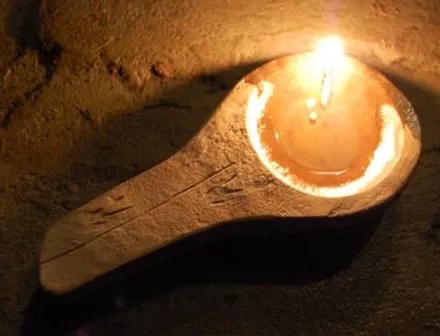Winter is Coming by Jim Snee
 When I was growing up in a village in Lincolnshire, proverbs and sayings of various sorts were never out of the conversation for long. Obviously, the phrase “Winter is Coming” wasn’t among them as it gained currency in a recent popular fantasy series. But it does remind me of the tough old men and women that were around when I was growing up.
When I was growing up in a village in Lincolnshire, proverbs and sayings of various sorts were never out of the conversation for long. Obviously, the phrase “Winter is Coming” wasn’t among them as it gained currency in a recent popular fantasy series. But it does remind me of the tough old men and women that were around when I was growing up.
In those days, rural life could still find ways of interrupting our modern utopia. The house I grew up in hadn’t received electricity or mains water until after the war and its supply of both relied on lines that crossed fields and followed narrow country lanes. Power cuts loom large in my childhood memories.
The thing is though, that when they happened, life carried on regardless. My parents and grandparents would go to the big kitchen cupboard that held the fuse box, the medicines, and other essentials and get out candles and matches. Torches, lanterns and a gas cooker would be rescued from the overflowing cupboard below the stairs and, as we had an old house without modern heaters, we would toast bread on the fire and mum would get the old griddle pan out and we would make scotch pancakes. For a child, it was all something of an adventure.
As an adult, I now know that my parents and grandparents were probably calm on the surface but worrying underneath. I also realise that my parents and grandparents had learned at a young age to survive the slings and arrows of outrageous fortune. With every power cut, and in winter even without them, the day would end with the ritual of filling hot water bottles. Someone, parent or grandparent, would tell the story of having to manage without hot water bottles, and how they would heat a brick in the fire and wrap it in newspaper to warm the bed. I didn’t take much notice of the story at the time, but I cherish it now.
This is why.
The stories of make do and mend come from my parent’s childhood and they give particular insight into one dark time. In September 1940, the storms that had ensured that the enemy would not arrive on England’s shores also heralded the coming of a long winter. Rationing was in place, supplies were low, thousands were homeless and tens of thousands more were due to spend their nights in outdoor shelters. In those circumstances winter was not just a disruption, it was a killer.
From the very beginning, the government had made good decisions, about food and about saving fuel. Leaflets appeared instructing the public on avoiding waste, and “innovations” were introduced. Straw boxes were made to slow cook food with less fuel. A clever heater of air raid shelters was improvised from a candle and two (ceramic) plant pots. All sorts of advice was shared in newspapers and on radio programs. More than that, people helped out. They gave what they didn’t need to relief organisations and charities. Communities unaffected by bombing raised money for the war effort while sending a message of solidarity to those most affected.
They did so because they had learned how, as children, during the first world war.
Even then, the coming together, and the “innovations” to save fuel or create a little warmth were ideas as old as the hills (as one of my old neighbours would say). The trick with the candle and the two plant pots is very old. Tens of thousands of years ago, when the first settlers in Lincolnshire moved into the arctic landscape, they knew that trick. In those days it was a stone lamp with rendered animal fat for fuel and moss for a wick. But it used the same principle. I’ve seen Inuit demonstrate how it is done. A small tallow lamp in an enclosed space stops the air from dropping below freezing. On a winter night, that is the difference between life and death.
And in those early times, children would learn to render fat for the lamp from the animals killed for food and to gather the right sort of moss for the wick. The lessons learned as children formed the basis of adult life. Skills that were not often used were passed on as stories or rituals.
We still have our stories and rituals. We may live in a world of technological wonder, but they are still there. As early as 1909, writers such as E.M. Forster were speculating about what would happen if an industrialised world suddenly ground to a halt. Forster even called his story “The Machine Stops”. Many have predicted terror and violence, but history has repeatedly proven them wrong. Why? Because when faced with extremes, people have recalled the lessons of their childhood and carried on living.
So, I cherish the stories and lessons I learned. Even if I don’t have to apply them, and I don’t have children to pass them on to. I look forward to the days when I am one of the tough old men that sits on the village bench and dispenses wisdom, “Winter is coming” will be very much on my lips.
The thing is that our modern machine world is not immune from stoppages. Storms will still come; powerlines will fall, and rivers will flood.
Winter is coming!
